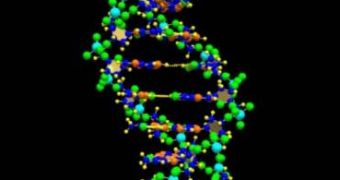A group of eight researchers has managed to carry out an interesting project - they created 7,500 original stubs and modified other 600 on Wikipedia, in order to develop a complete description of the human genome. The team has decided to introduce their initiative to the public via a scientific magazine, PloS Biology, where they give some explanations for the reasons behind choosing Wikipedia as a support for their data.
"We examined the ranking of these gene pages by the search engine Google [...]. The high visibility of these gene pages strongly suggests that the Wikipedia gene wiki will continue to grow, in the number of both readers and editors," they said, underscoring that, along with the actual scientists who set the bases of the content, people are also encouraged to help the development of the project.
Since most of the casual editors of Wikipedia's pages don't start off with their own creations, the stubs containing the basics of every gene described in the project were compulsory. "As alluded to previously, the success of this gene wiki effort relies on a positive-feedback loop between page utility, the number of readers, and the number of editors. It is commonly recognized that new wiki editors are more likely to edit an existing page rather than to create a new one. Therefore, this stub-creation effort represents the critical first step in that positive feedback loop - the creation of useful initial wiki pages," the researches added.
Since Wikipedia is popular but not always trustworthy when it comes to scientific articles, the researchers are also considering the initiative of a similar project on Citizendium, a website that requires the names of the editors, which makes them show a greater responsibility and which, in turn, translates into them providing higher quality texts. But, even so, the creators of the undertaking are aware of the fact that adding their articles to Wikipedia is the best way to reach out to a greater number of people. "Although several other gene wikis already exist, none currently has access to a large user base and favorable search engine rankings of Wikipedia," they concluded by saying.

 14 DAY TRIAL //
14 DAY TRIAL //